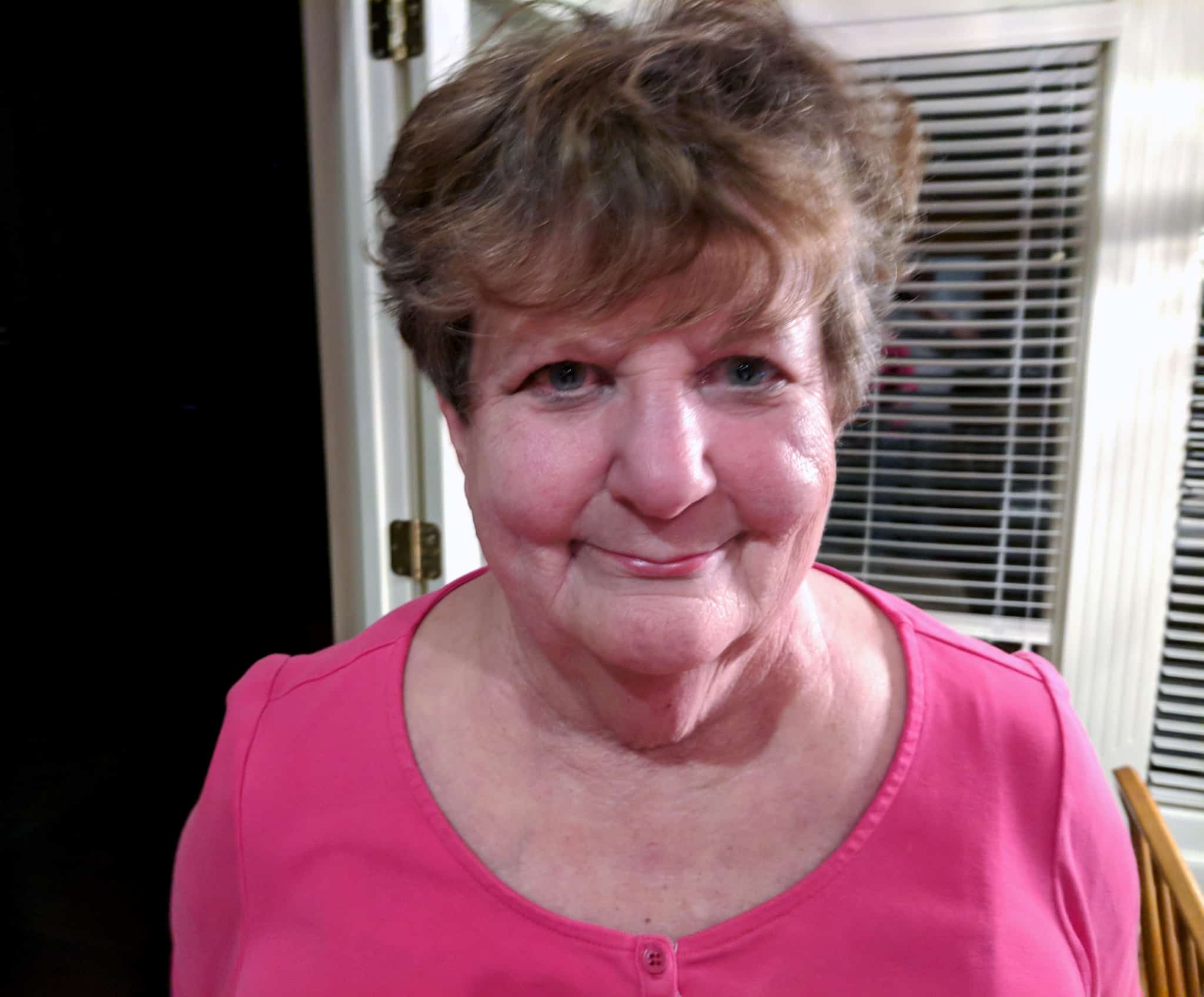Myeloma Diagnosis Amid National Tragedy Solidifies Patient’s Gratitude
| A severe backache 17 years ago led to Janis Bendinger being diagnosed with myeloma. Then living in Philadelphia, she was referred to UAMS for treatment. But amid her own personal crisis, a national tragedy of historic proportion erupted the day before her flight.
“I was supposed to fly from Baltimore to Little Rock on Sept. 12, 2001,” Bendinger, now 69, said. The day before her scheduled flight, the 9/11 attack unfolded, killing nearly 3,000 people.
“I’d heard about the attacks the morning of Sept. 11, but we still went down to Baltimore later that day to catch my flight because we didn’t know if it would be canceled. The entire airport was closed. It was eerie and very surreal. My appointment was on the 13th, but I couldn’t come because all the planes were grounded,” said Bendinger. “So I came that October instead.”
Diagnosed with low-risk myeloma in August 2001, Bendinger’s primary care physician, Harriet Schwarcz, M.D., in Blue Bell, Pennsylvania, recommended she seek treatment at the UAMS Myeloma Center.
“Her 80-year-old uncle had been diagnosed with myeloma and sought treatment at UAMS and was doing really well,” said Bendinger. “She had nothing but good things to say about the care here.”
Bendinger’s daughter, Judith Humphries, lived in Little Rock and provided her a place to stay and cared for her during treatment. As a bonus, during Bendinger’s time in Little Rock, the new grandmother was able to spend more time with her first grandchild, Judith’s 4-month-old son, Tucker.
“Since I was an outpatient, I wasn’t secluded and got to spend all that time with my family,” she said. “Staying with my daughter made it so much easier and I got to see life go on. I received excellent care at UAMS; I couldn’t have asked for it to be any better.”
Bendinger had five chemotherapy treatments and two stem-cell transplants, the first in March 2002 and the second that September with her final chemotherapy treatment in early 2003.
“I went without hair for a year and a half,” she said. “I didn’t wear a wig or a scarf because they bothered me.”
She recalls being a little envious of several men she saw undergoing treatment who hadn’t lost their hair.
“Other than that, I felt pretty good about my treatment in Little Rock,” she said, chuckling.
Bendinger is in remission with no maintenance. She now lives in Kansas City, Kansas, with her husband, Fred, and visits her oncologist there twice a year for checkups.
“My oncologist says I am as cured as a myeloma patient can be,” she said, adding that her lab results have not changed in 14 years.
Bendinger began going to support groups after she’d completed her treatment and moved to Kansas City. She went to give rather than to receive.
“I felt I owed it to people to share my story with them,” she said. “I always told other patients if they had questions, weren’t satisfied with their care or just wanted a second opinion that UAMS in Little Rock was the place to go.”
On a recent trip to Little Rock to see her daughter, she visited UAMS and saw the new clinic area.
“The people there were always wonderful and helpful, but now with all those smaller areas for treatment, it’s a very impressive place,” said Bendinger. “I think anyone who goes there would be comfortable and that’s such an important part of treatment.”
In addition to the state-of-the-art medical care she received at the UAMS Myeloma Center, she credits her attitude and gratitude, which she said was enhanced by living near the epicenter of the 9/11 attacks.
“The experience of being delayed that one month, being there in Philadelphia when it happened and everything we heard and saw, all made me more resolved that it was up to me to do my part in my health care while the doctors did theirs.
“I was certainly past the whining part,” Bendinger said. “Through all my treatments, I was still able to see my daughter and my grandson and I always remembered those other 3,000 people who were no longer able to enjoy their loved ones.”
Bendinger now has five grandchildren, all grandsons, but the time she spent with Tucker when she was being treated at the UAMS Myeloma Center remain precious to her.
“One of my most vivid memories, about a year after my diagnosis, is of him wearing my flats and coming into my room to wake me up, saying, ‘Mimi! Get up!’”
Tucker is now a senior at Little Rock Central High School. Come spring, Bendinger plans to be here to watch him walk across the stage as he graduates. Until then, she counts it as one more precious memory waiting to be made.
